What is Giftedness
- Giftedness is the talent that children have on various aspects of life (VanTassel-Baska, 2004).
- In education, this term is used to refer to children who have high academic capabilities.
- Consequently, it can be used to describe children who are talented in:
- Arts;
- Sports;
- Other extra curricular activities.
- Children who are gifted have above average capabilities.
- Therefore (Coleman, 2004) considered giftedness to be:
- Innate.
- Determined by personal aptitude.
- Exhibited through activities that cannot be learnt through personal effort (Good, 2011).
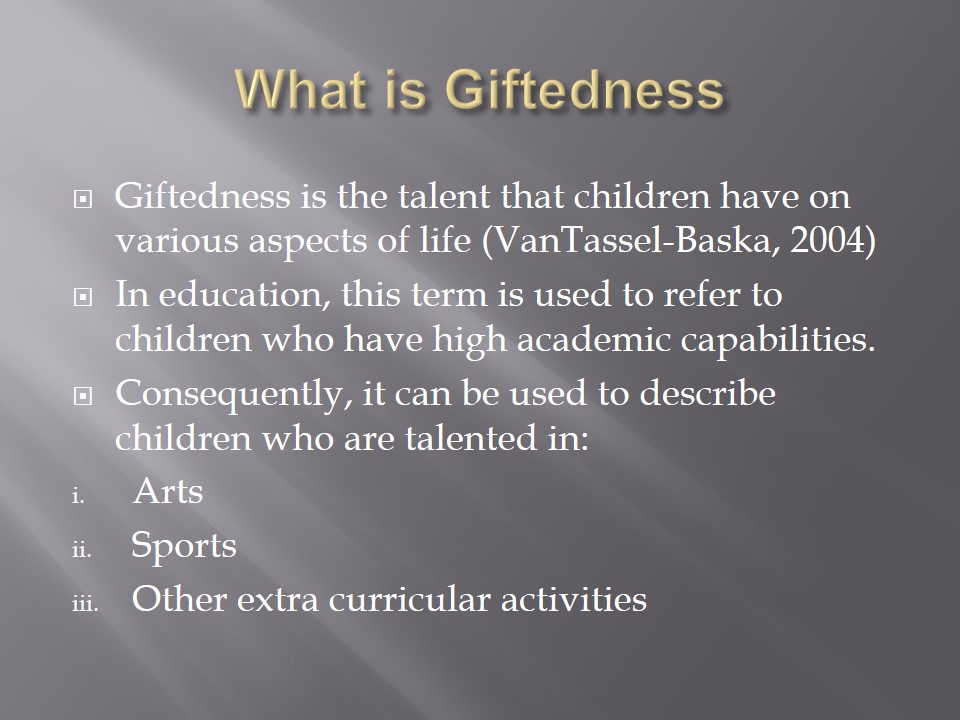
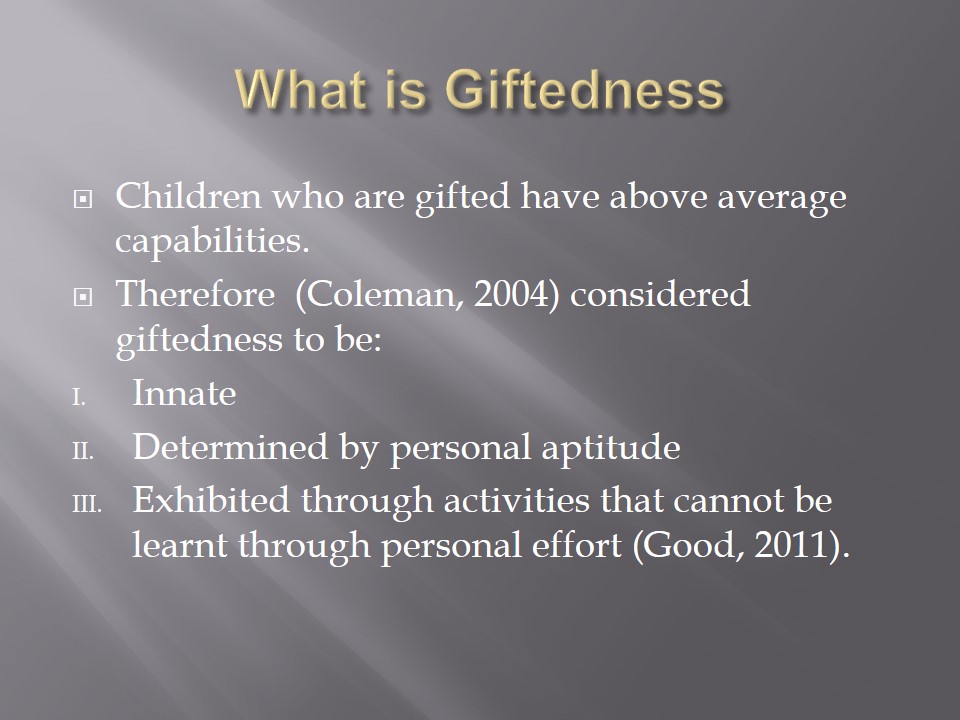
Giftedness as a Disability
- However, giftedness can be regarded as a disability.
- This is because it affects the social and emotional aspects of an individual in a negative manner.
- As a result, gifted children tend to suffer emotionally and psychologically.
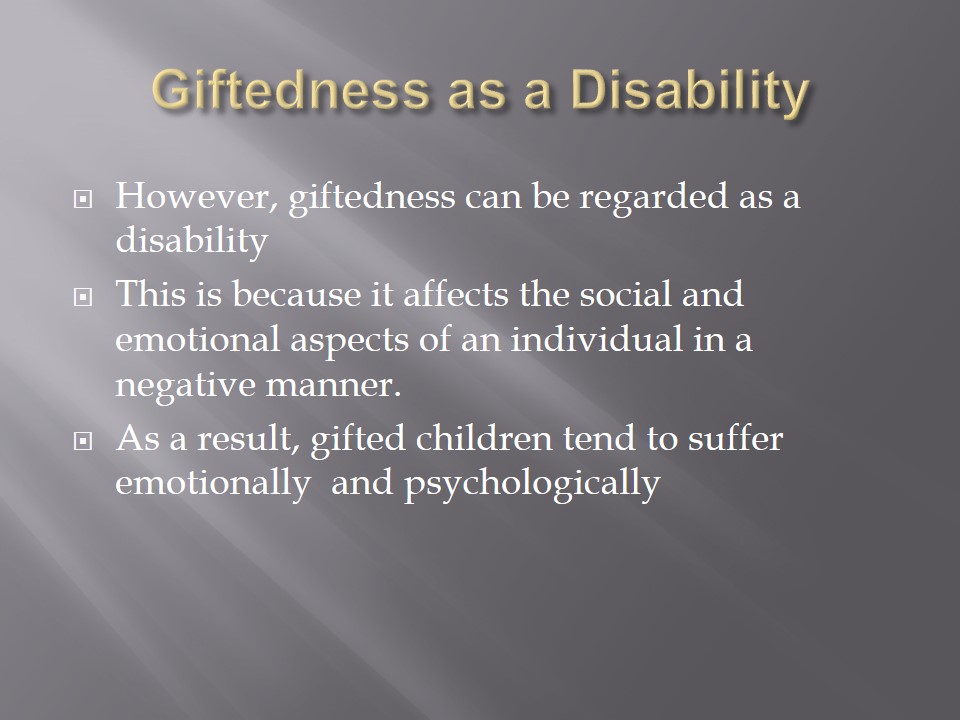
Myths about Gifted Children
- Several myths of gifted children have been advanced (Ross, 2003).
- There is a myth that considers gifted children as high achievers in life.
- Gifted children never require help.
- Gifted children are isolated socially.
- They have an innate creativity hence they do not need to be encouraged.
- They encounter fewer problems as compared to average children.
- They have a lot of career opportunities.
- They are self-directed.
- Finally, their driving force is their brain power.
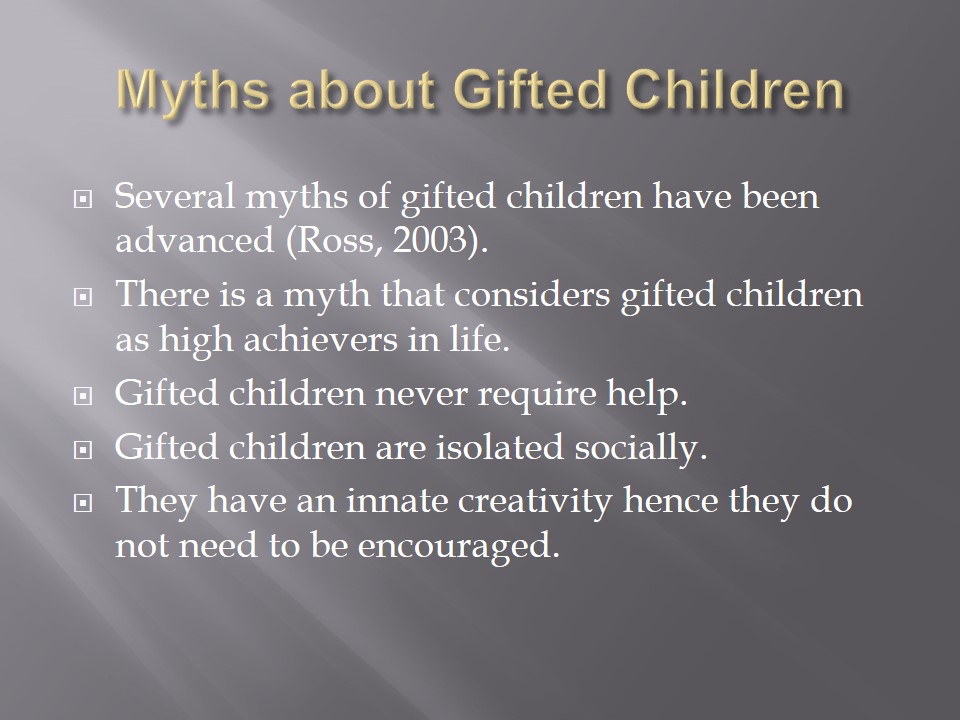
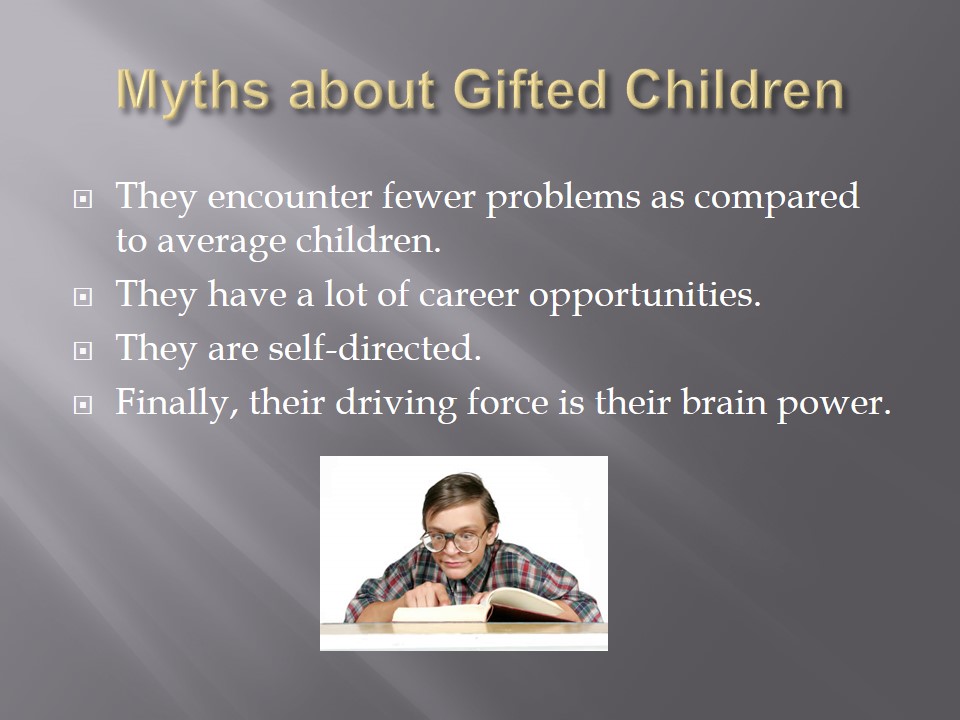
What should an Educator Look for?
When dealing with gifted children, an educator should look for the following signs:
- Inquisitive minds.
- Intellectual curiosity.
- High reasoning capacity.
- Creativity and originality.
- Keen sense of observation.
- Presence of ethics and values.
- Precise use of vocabulary.
- Mastery of basic concepts and skills.
- Capable of connecting with new ideas.
- High level of competence in specific areas such as science, music, sports, and so on.
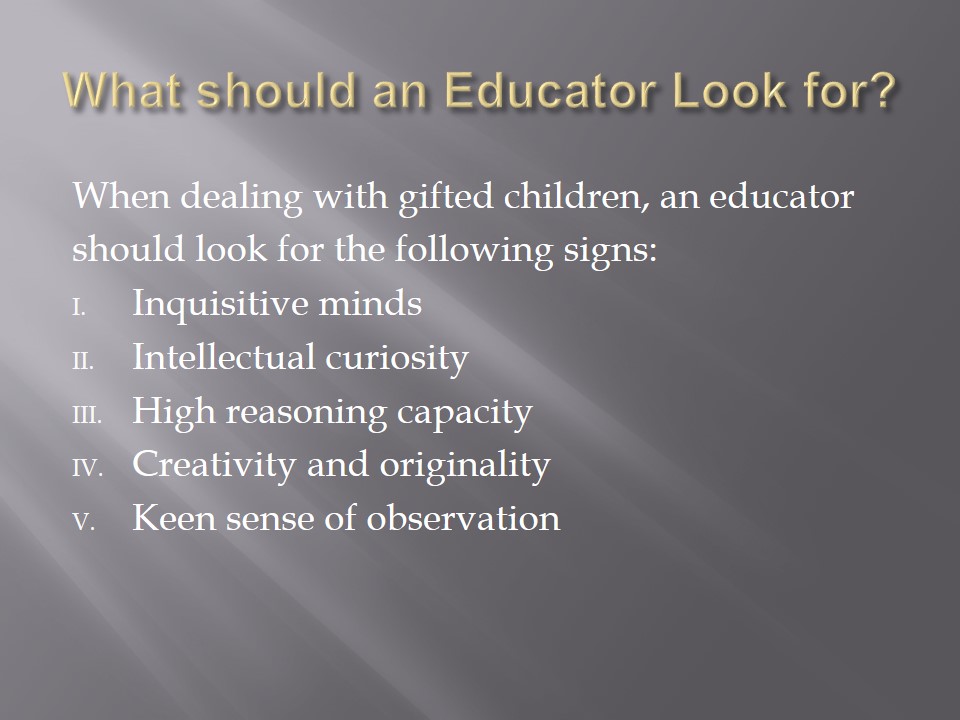
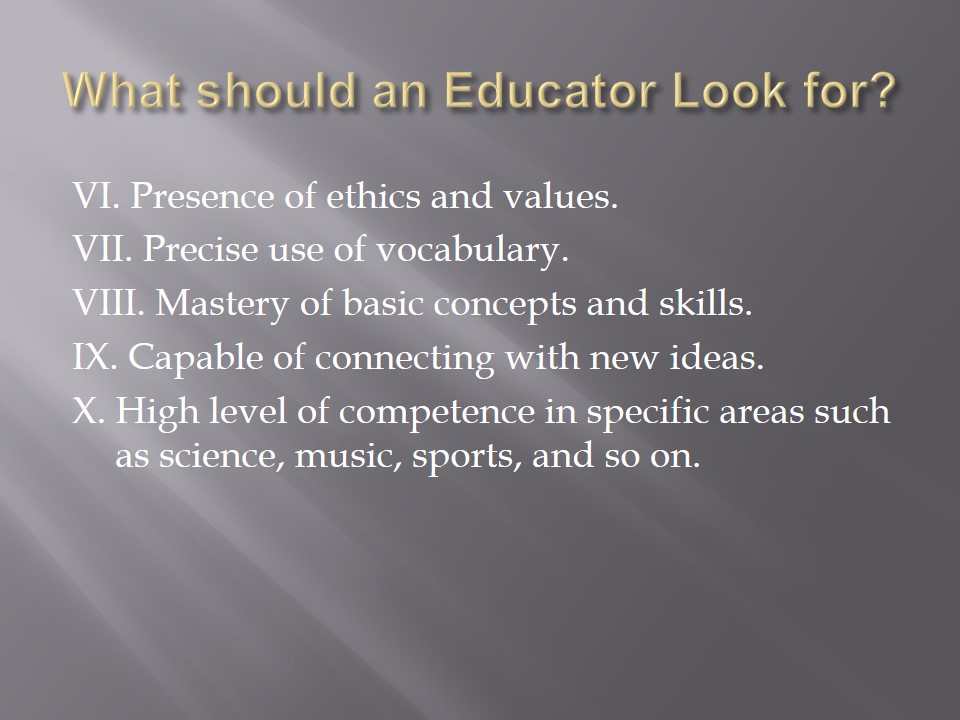
A focus on Gifted Children
- A teacher should also be aware of children who avoid doing tasks in class because they are easy.
- Such students regard normal class work as easy therefore avoid doing it altogether.
- In the process, this act might develop into an attitude that affects the overall learning process in the student (Hale-Benson, 1996).
- However, there are those gifted children who want to showcase their skills.
- These are the students who want to answer all questions and take part in very activity.
- Such behaviors can easily be confused with ADHD hence the child might be put in a medication that he/she does not require (Hale-Benson, 1996).
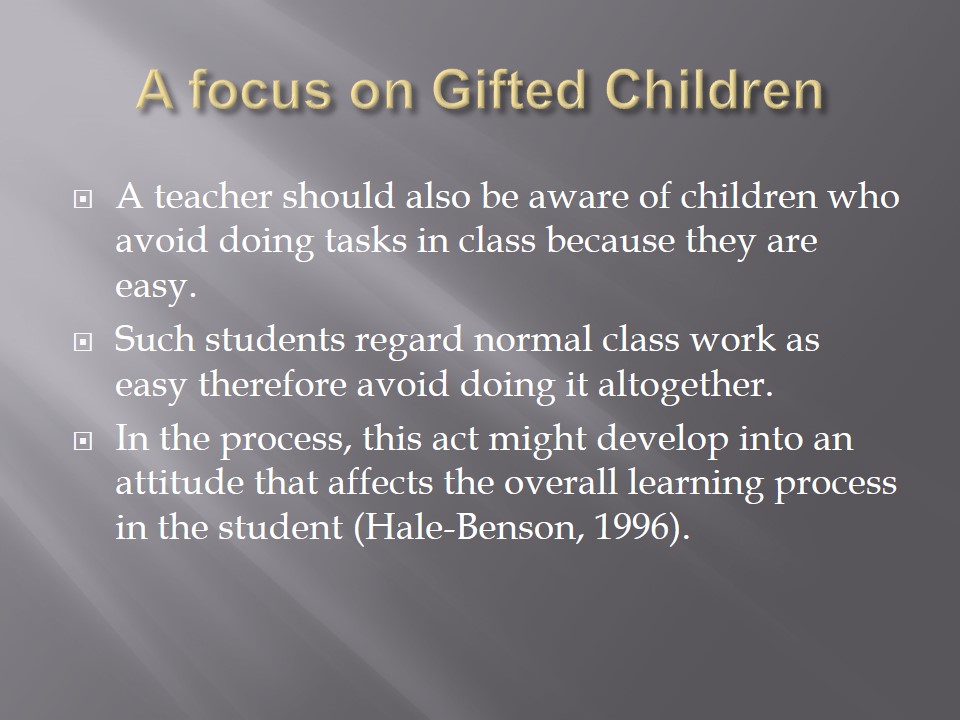
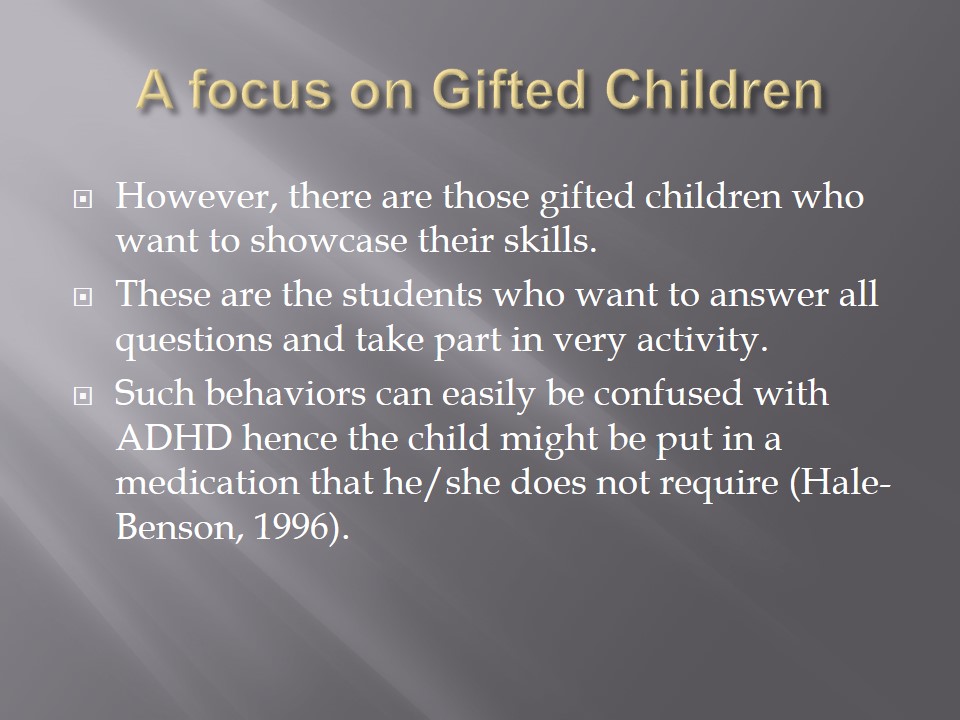
Multiple Intelligence
- According to the theory of Multiple intelligence that was presented by Howard Gardner, individuals possess different cognitive abilities (Clark, 2003).
- Therefore, an individual might be better in academics as compared to another individual who is good in athletics.
- This theory therefore explains why different people excel in different fields.
- Logical-mathematical intelligence deals with logic and critical reasoning of an individual.
- Logical-mathematical intelligence is high in gifted children hence explaining why they views tasks as easy.
- This attitude tends to reduce their activity in class hence may affect their performance in a negative manner.
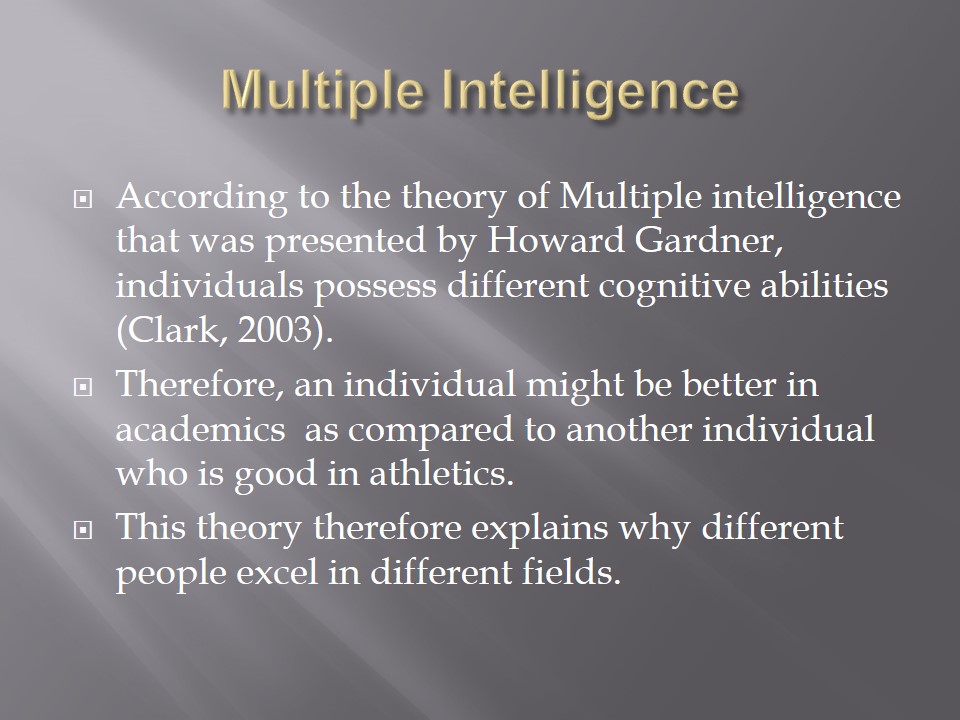
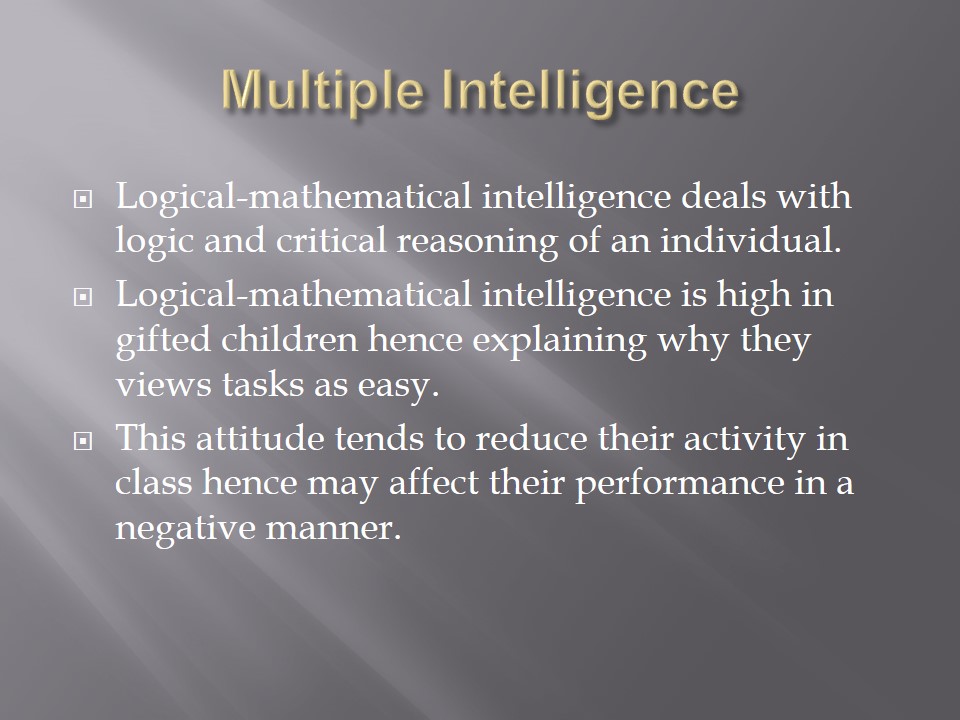
Multiple Intelligence and the Well-being of Gifted Children
- Interpersonal intelligence that enables an individual to relate with others might be low.
- Gifted children may disregard other children who in turn might avoid socializing with them.
- Gifted children may also develop clinical disorders when they try to suppress their talents so that they can interact with their peers.
- With a high level of intrapersonal intelligence, gifted children might reflect on their lives and discover that they are sad and empty (Clark, 2003).
- This bring about an emotional imbalance that might lead to depression.
- This is the main reason why gifted children tend to be bullied in school.
- With a high level of intrapersonal intelligence, gifted children might reflect on their lives and discover that they are sad and empty (Clark, 2003).
- This bring about an emotional imbalance that might lead to depression.
- This is the main reason why gifted children tend to be bullied in school.
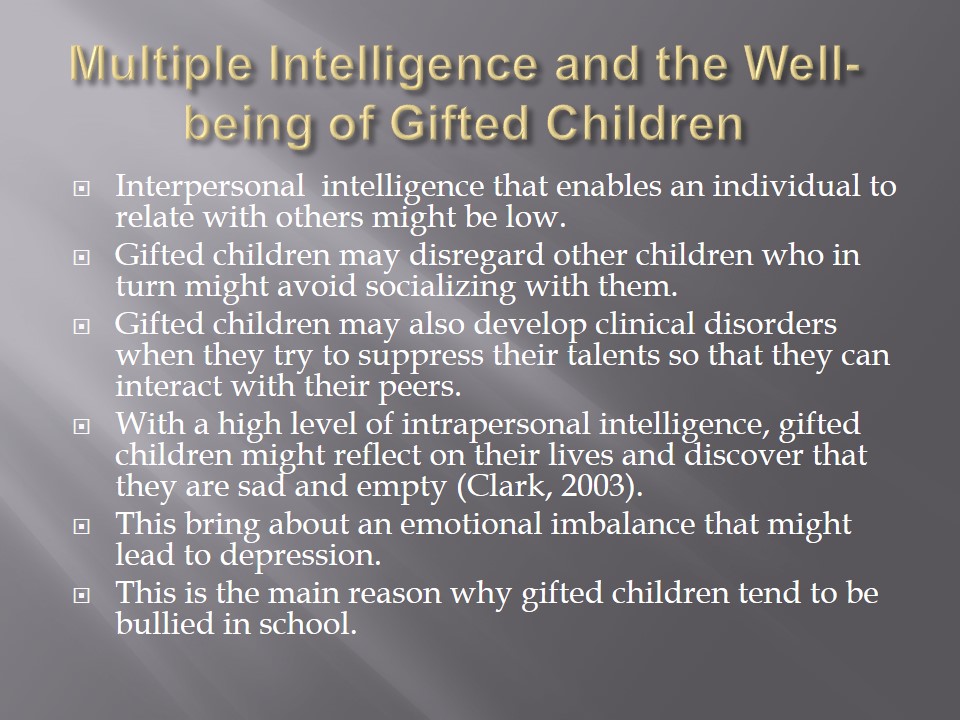
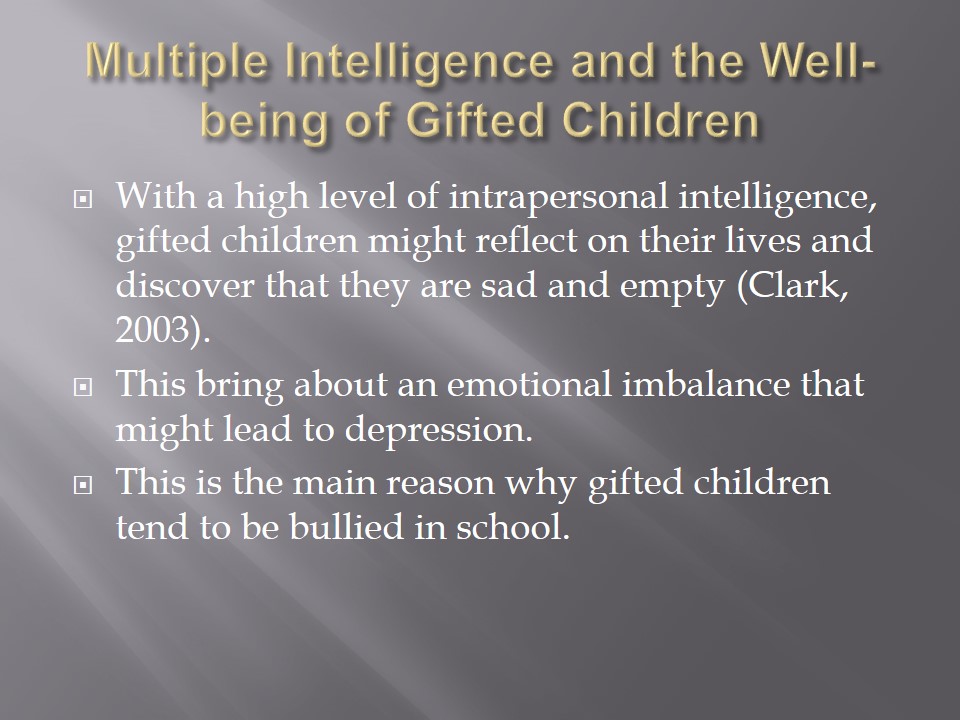
What is Gifted
The following characteristics can be considered as gifted:
- Imagination and creativity.
- Memory and mental processing.
- Problem solving skills.
- Intuition.
- Expressiveness.
The following characteristics might not be considered as gifted:
- Humor.
- Inquiry.
- Interest.
- Motivation to learn.
- Moral and ethical concerns.
Given that gifted children do not possess the above qualities, it is difficult for them to interact with their peers and to their family members in some extent.
They tend to form associations with other individuals who possess similar capabilities thus isolating themselves from the real world (Ross, 2003).
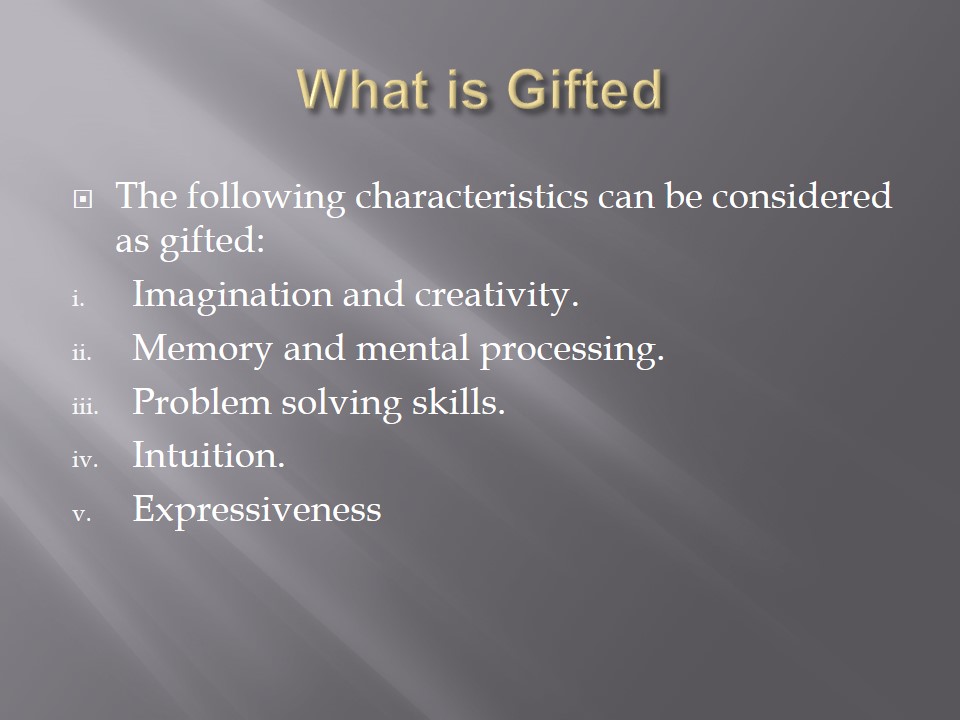
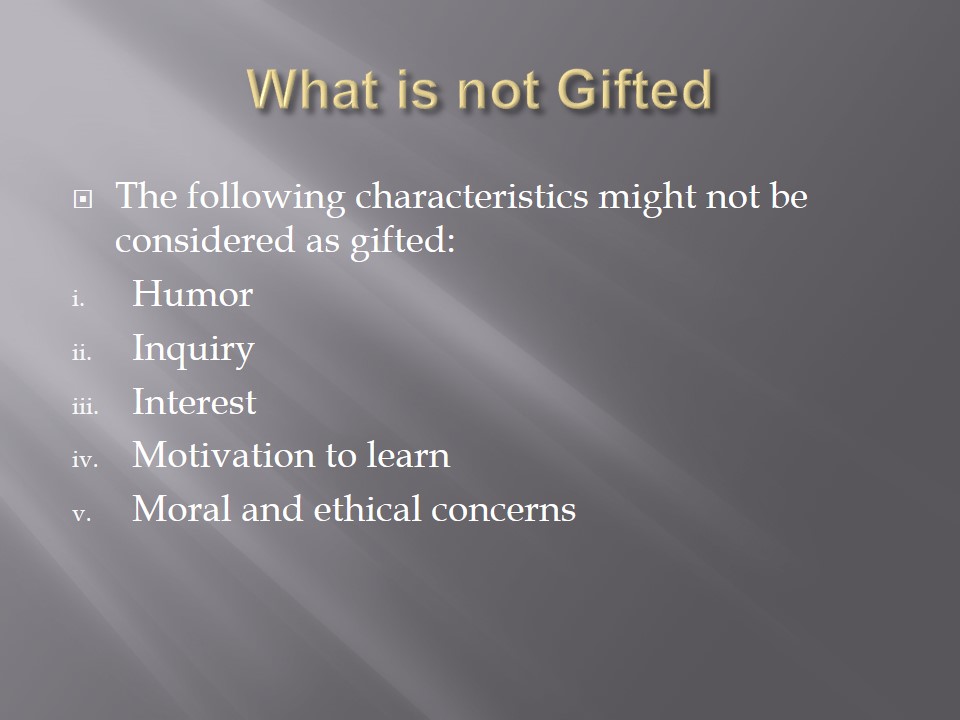
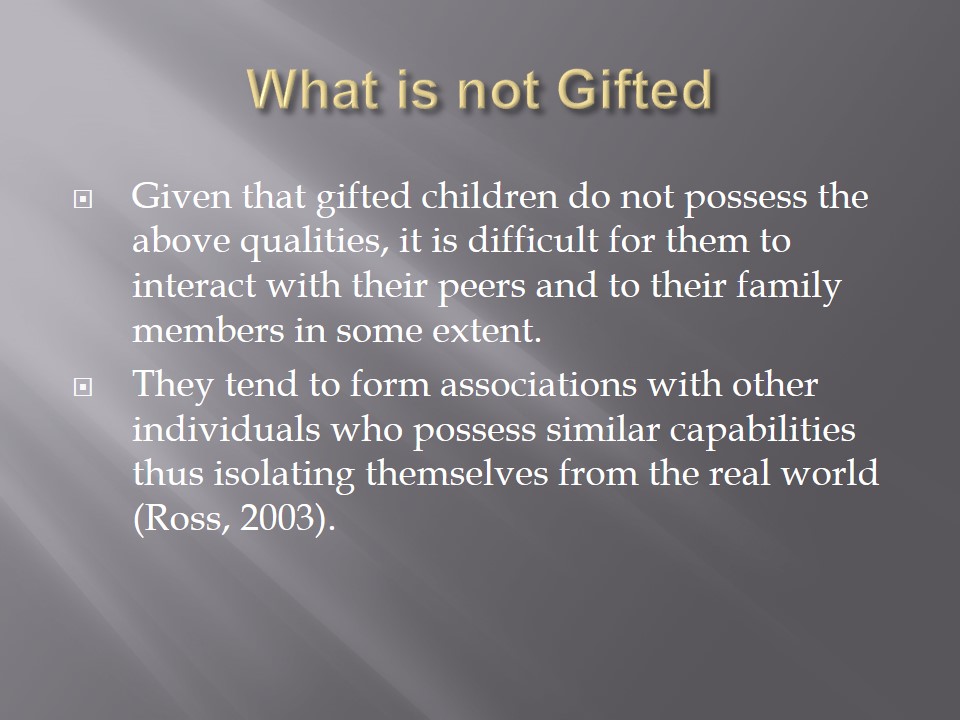
Factors Determining Giftedness
According to (Ford, 2003), the following factors affect giftedness in children:
- Family effects.
- Peer influence.
- School environment.
- Influence from teachers and other educators (Johnson, 2007).
- Psychological factors.
- Biological history of the family.
- The environment in which the child is exposed to.
- Self-motivation.
- Exposure.
- Practice.
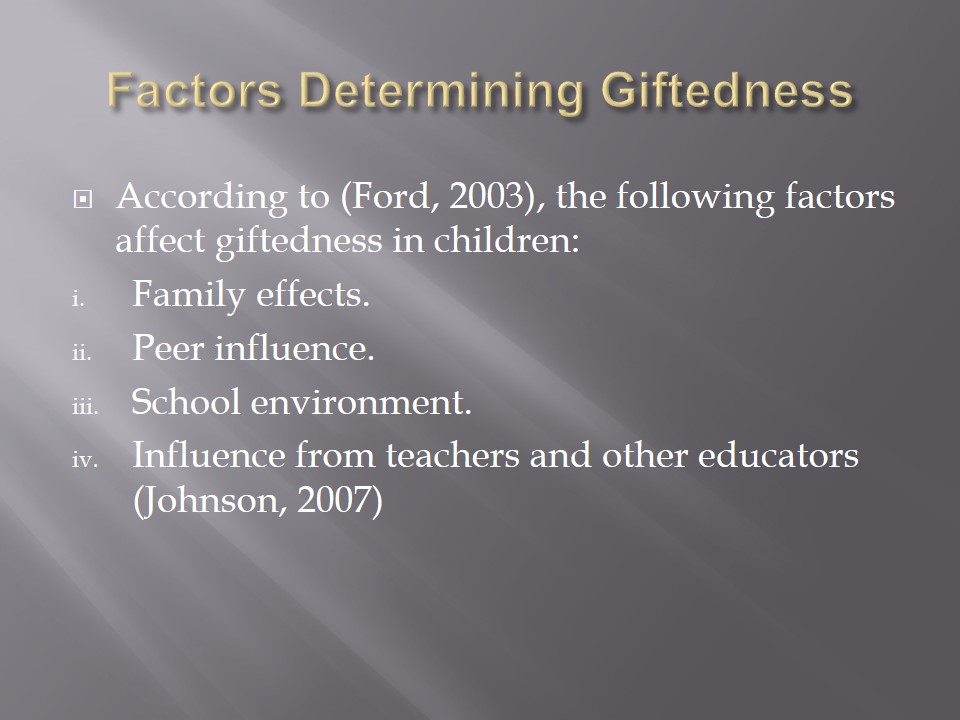
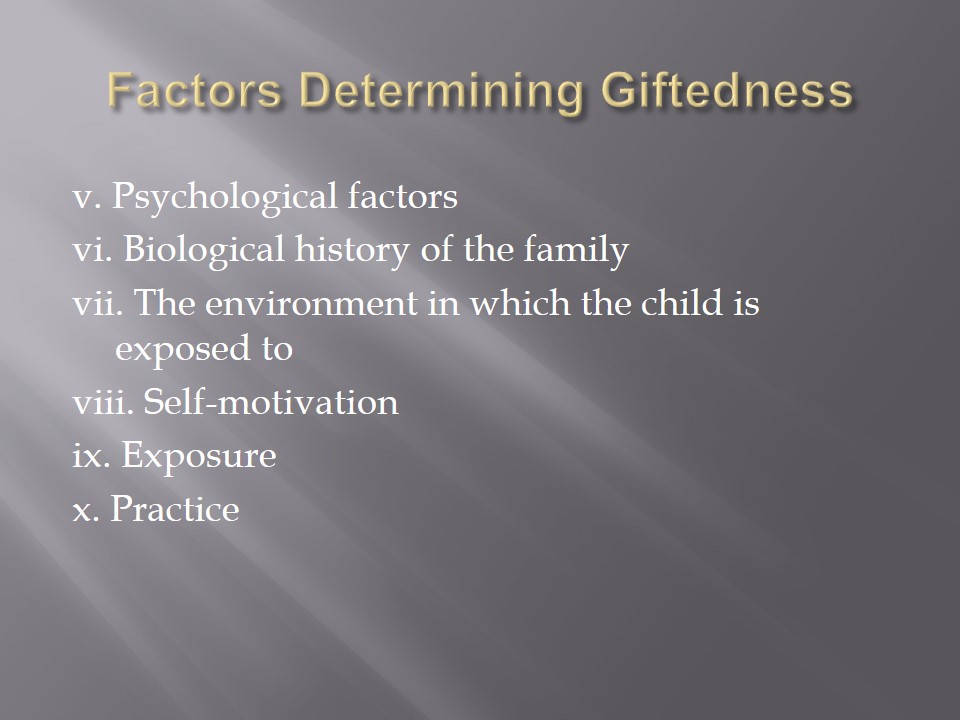
Effects of Socioeconomic Background on Giftedness
- The success of a gifted student highly depends on the factors that he/she is exposed to.
- Gifted students from wealthy families are exposed to a lot hence they have the chance to put their skills into practice.
- Gifted children from poor families are exposed to fewer factors hence they may not have the chance to explore their full potential.
- Despite the assumption that gifted children can excel in any condition.
- However, they require special programs to enhance their capabilities (Good, 2011).
- This exposure will increase their motivation that will enable their to explore their potential.
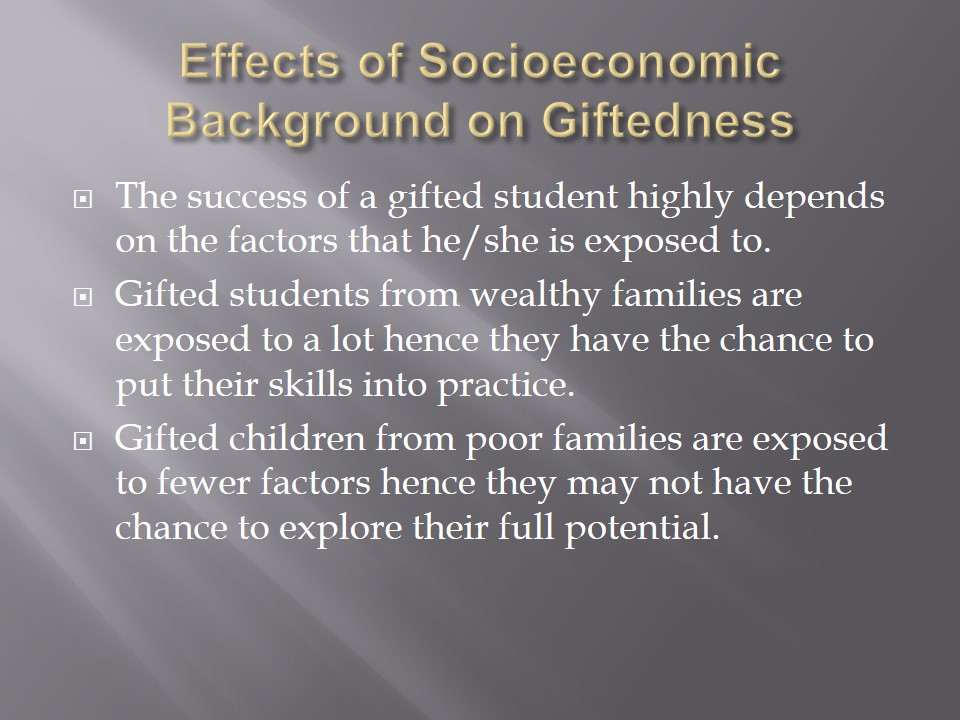
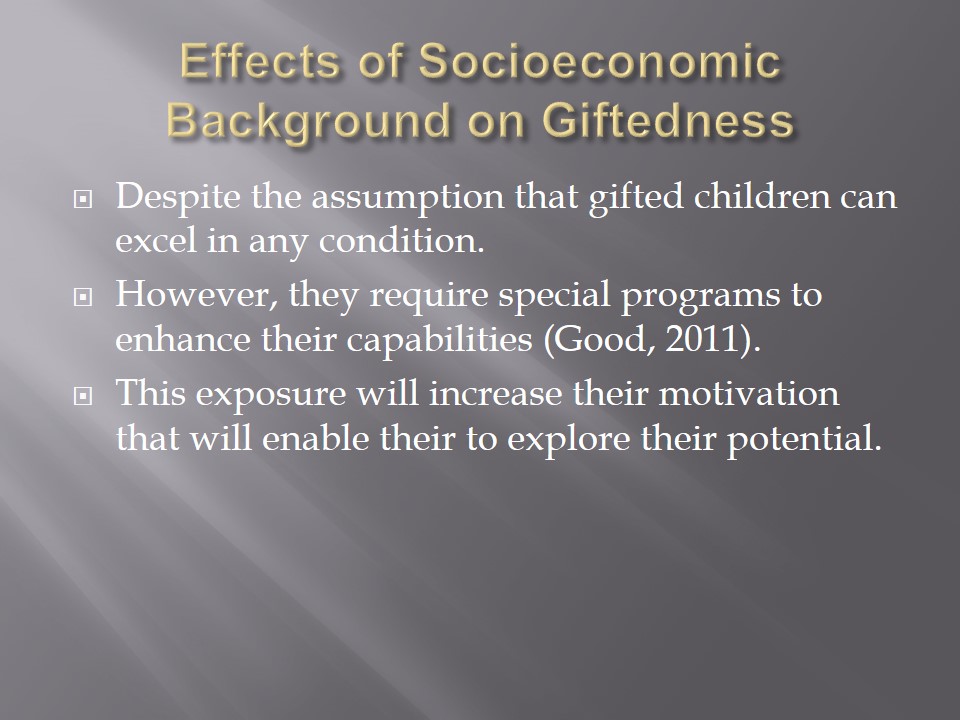
Impact of Giftedness on Students
Giftedness has the following positive impacts on students:
- Enhances their academic performance.
- Provides them with career opportunities.
- Increases their motivation towards education and life.
- Enables students to achieve their goals in life (Fordham, 1988).
However, there are negative effects that are associated with giftedness. They include:
- Poor socialization.
- Poor emotional development.
- Development of undesired characters.
- Depression.
- Poor psychological development.
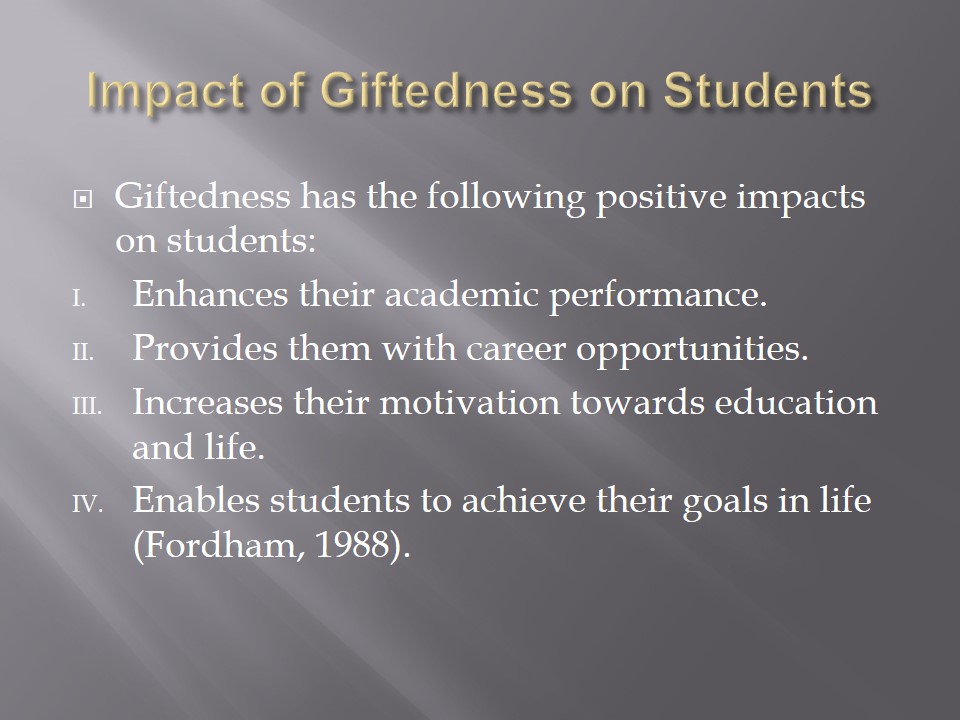
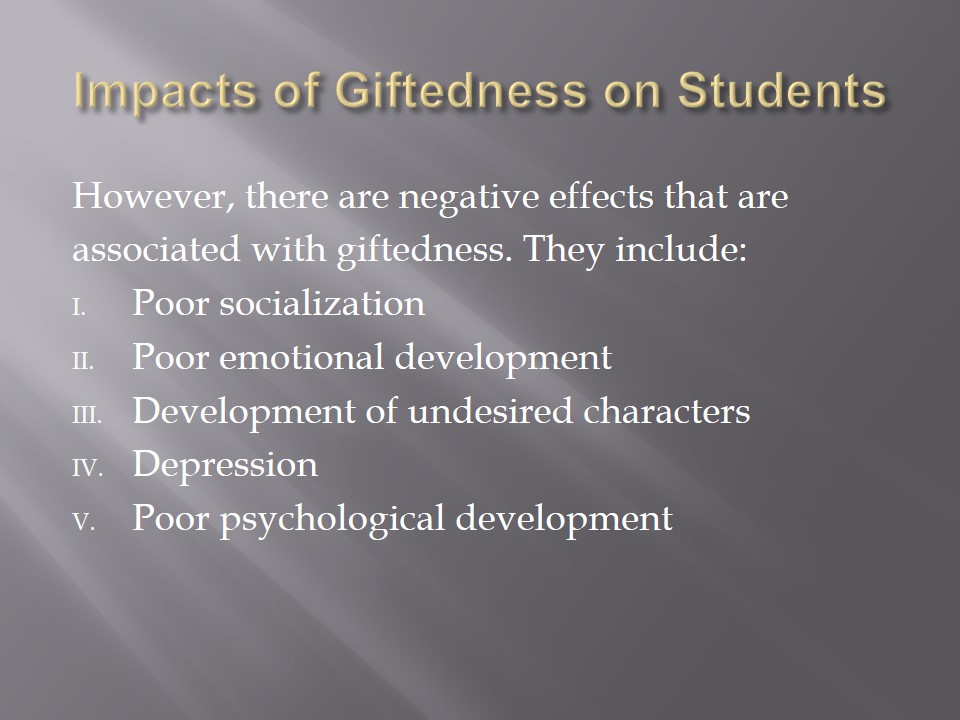
Role of Teachers
Teachers need to be aware of the factors that inhibit the performance of gifted students (Lindstrom, 2006).
They also need to create a conducive learning environment for students regardless of their gifts and talents that they posses, their gender, race, or background (Whitmore, 2010).
Influence parents, family members, and friends to encourage students to develop their talents.
Consequently, teachers can:
- Enhance the interaction that they have with gifted students.
- Encourage the students to enroll in various extra curricular activities such as sports, music, drama and so on to increase their level of engagement and interaction with their peers.
- Encourage the students to expand their involvement and achievements in various disciplines.
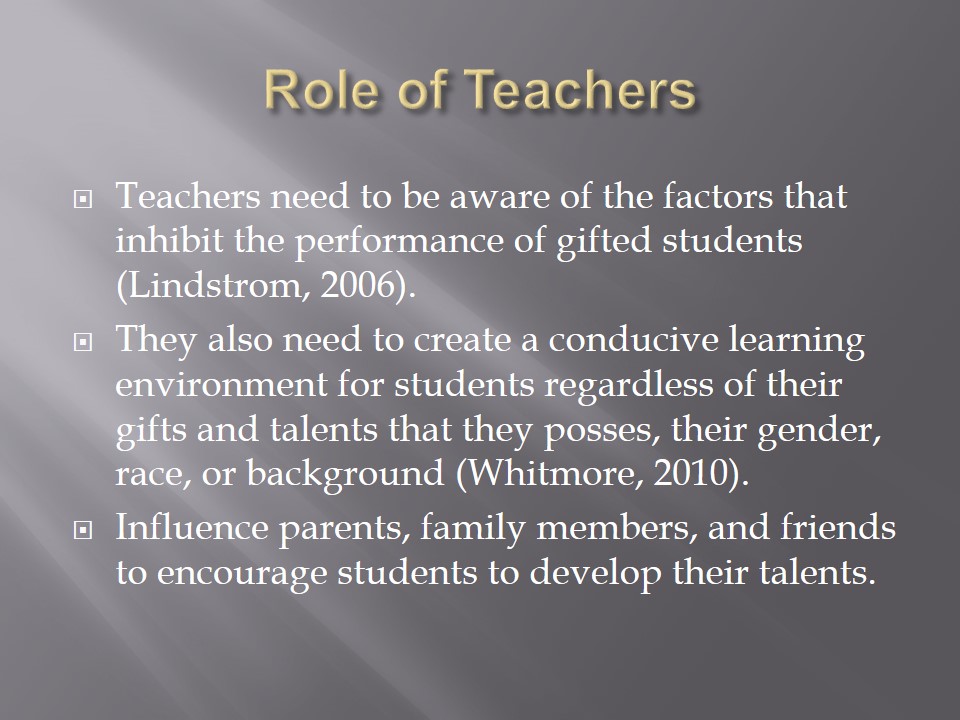
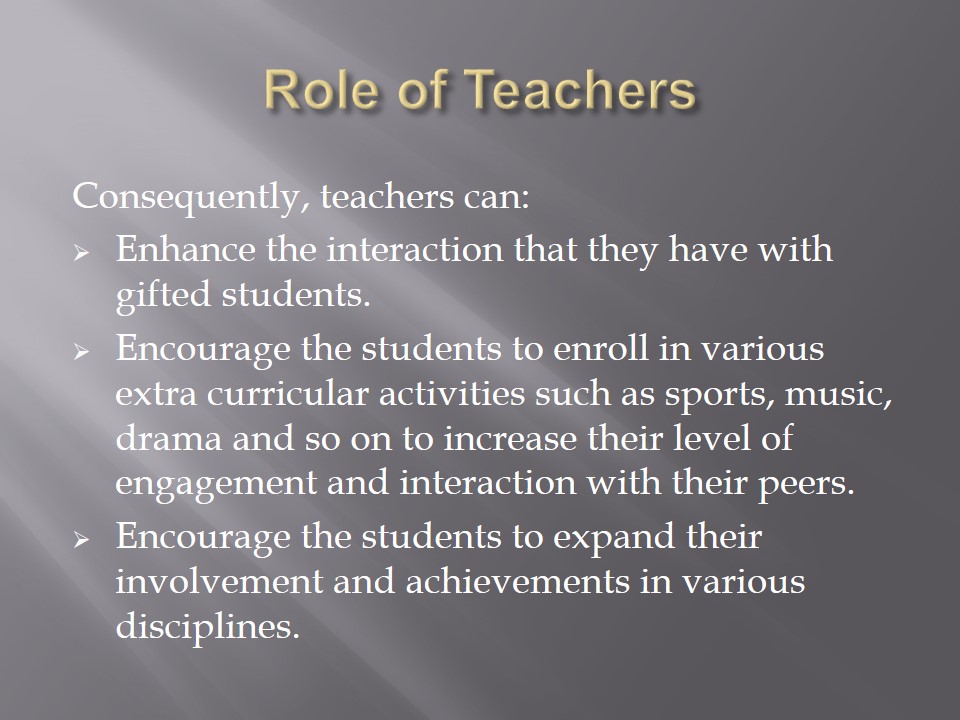
Resources Available for Gifted Students
Human resources such as:
- Teachers.
- Trained counselors.
- Positive mentors and role models.
- Professionals.
Material resources:
- Libraries, books, and journals.
- Student forums.
- Special programs for gifted students.
- Peer support initiatives.
- Anti-bullying campaigns.
- Conducive learning environment.
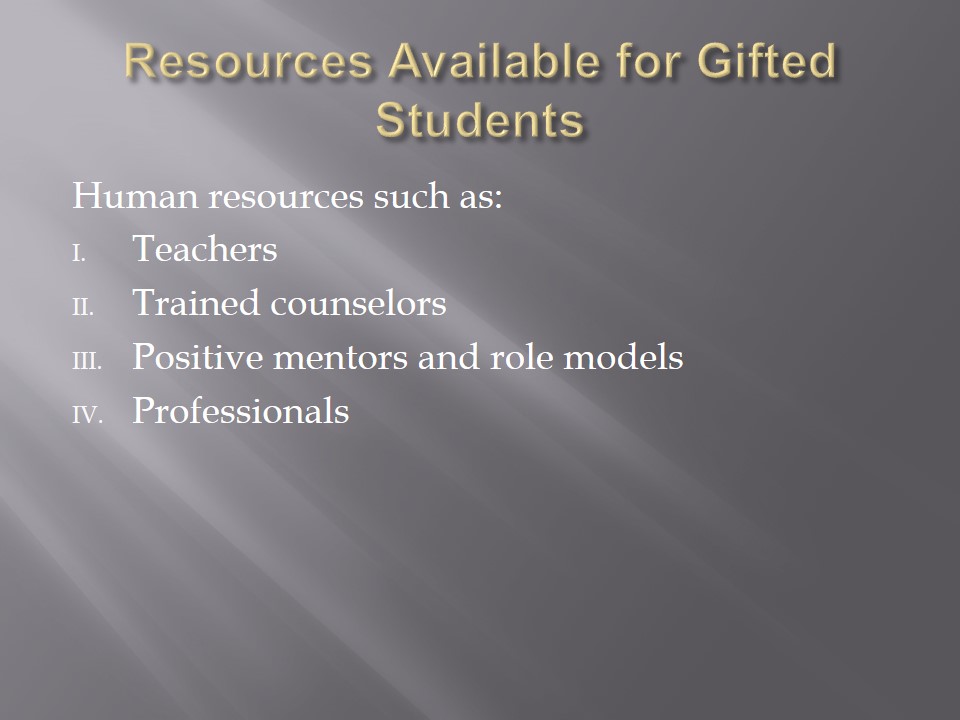
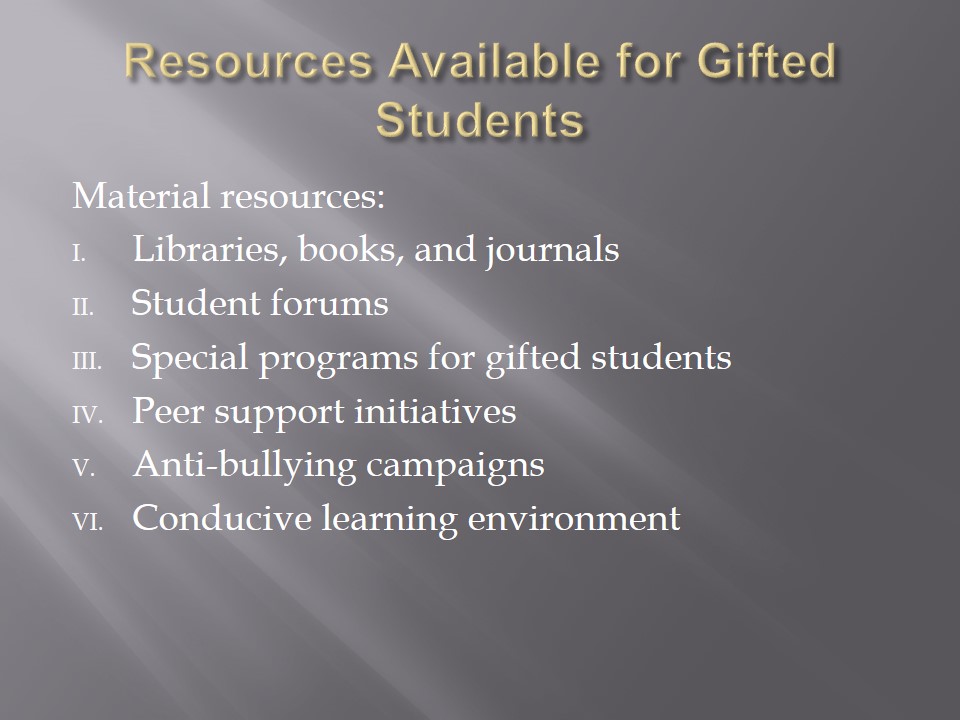
Future of Giftedness
- Governments should develop and implement policies that enhance gifted education at all academic levels.
- Policies and strategies should be implemented to enhance interaction and engagement of gifted students with their peers.
- Special programs should be put in place to determine, monitor, and control the behavior of gifted children to eliminate depression and emotional imbalance.
- Information technology should be adopted and implemented in gifted education.
- Emphasis should be placed on the learning and acquisition of foreign languages to create a global competitive human capital from gifted education (Hale-Benson, 1996).
- Information technology should be adopted and implemented in gifted education.
- Further research is required to enhance the student performance of gifted students.
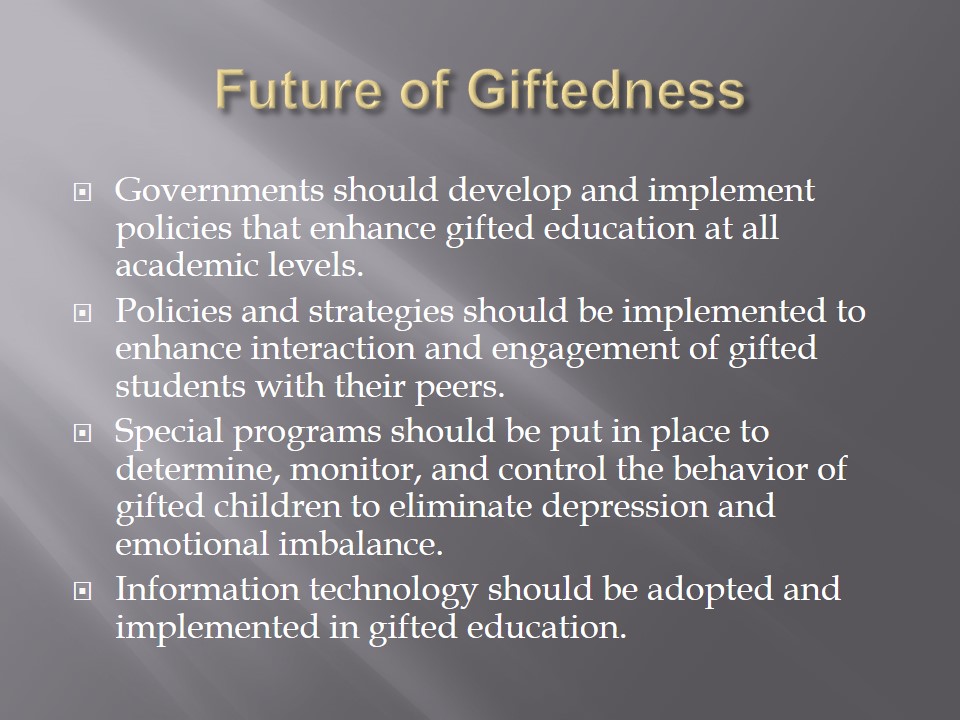
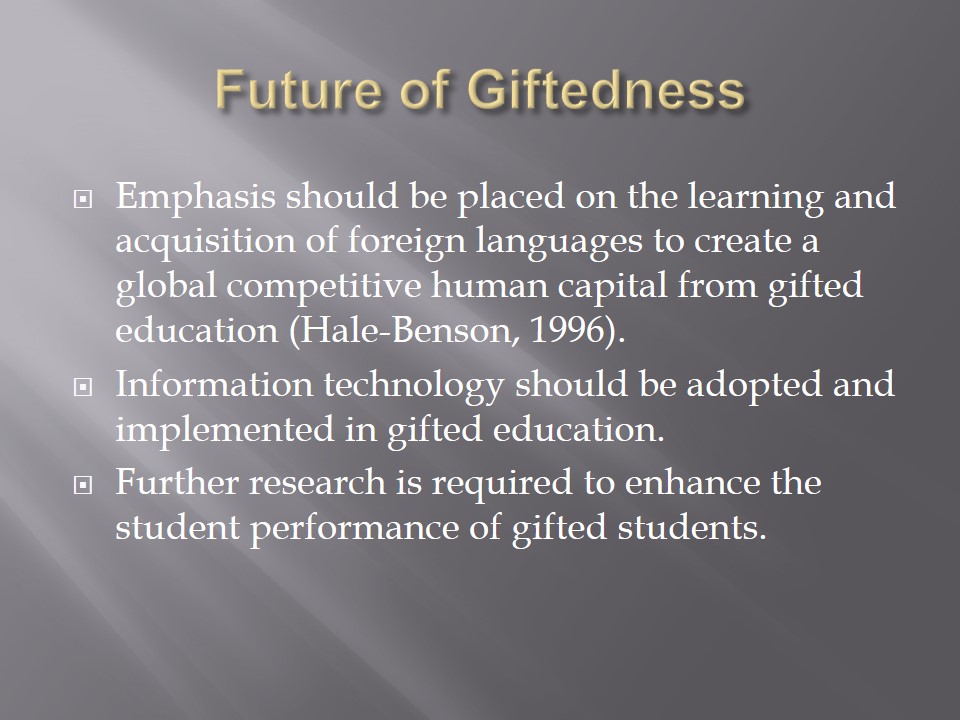
References
Clark, R. (2003). Family Life and School Achievement: Why Poor Black Children Succeed and Fail. Chicago: The University of Chicago Press.
Coleman, M. (2004). Updated Report on State Polices Related to the Identification of Gifted Students. Chapel Hill, NC: University of North Carolina at Chapel Hill.
Ford, D. Y. (2003). Black Students’ Achievement Orientation as a Function of Perceived Family Achievement Orientation and Demographic Variables. Journal of Negro Education, 62(1), 47-66.
Fordham, S. (1988). Strategy for students’ School Success: Pragmatic Strategy or Pyrrhic Victory? Harvard Educational Review, 58(1), 54-84.
Good, T. L. (2011). Teacher expectations and student perceptions: A decade of research. Educational Leadership, 38(5), 415-421.
Hale-Benson, J. (1996). Black Children: Their Roots, Culture, and Learning Styles (2nd ed.). Baltimore, MD: Johns Hopkins University Press.
Lindstrom, R. (2006). Special issues in working with gifted adolescents. Journal of Counseling and Development, 64(9), 583-586.
Johnson, S. (2007). Home environment, talented minority youth, and school achievement. Journal of Negro Education, 56(1), 111-121.
Ross, P. (2003). National Excellence: A Case for Developing America’s Talent. Washington, DC: Office of Educational Research and Improvement (ED)
VanTassel-Baska, J. (2004). The role of the family in the success of disadvantaged gifted learners. Journal for the Education of the Gifted, 13(1), 22-36.
Whitmore, J. R. (2010). Giftedness, Conflict, and Underachievement. Boston, MA: Allyn & Bacon.